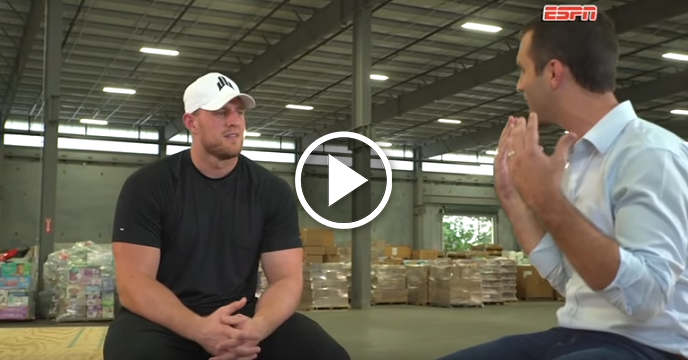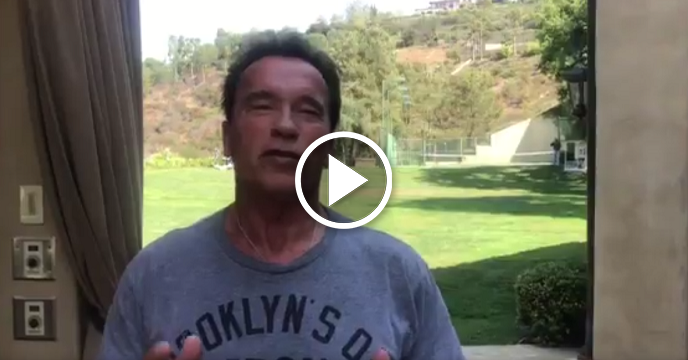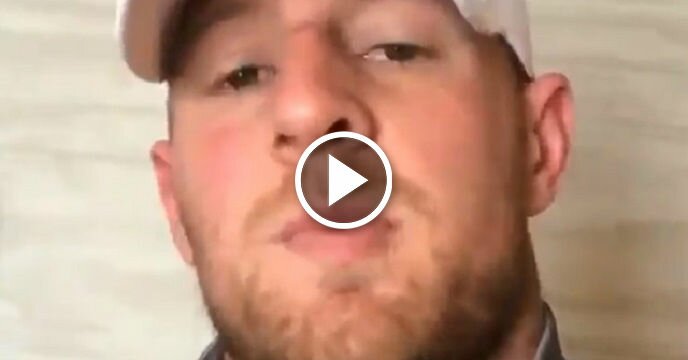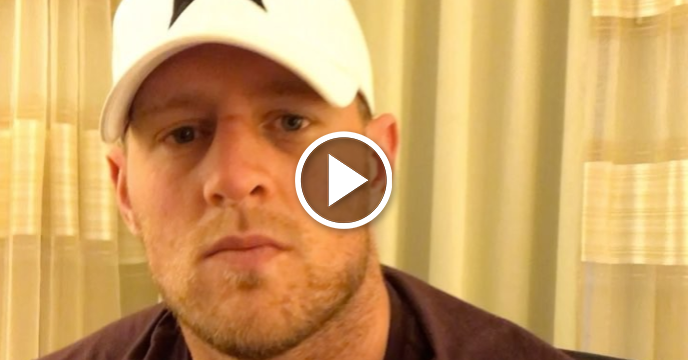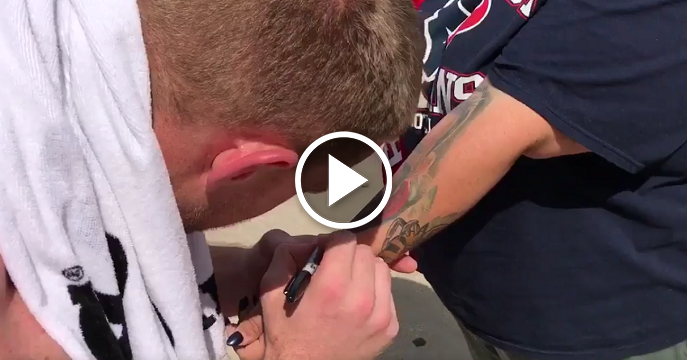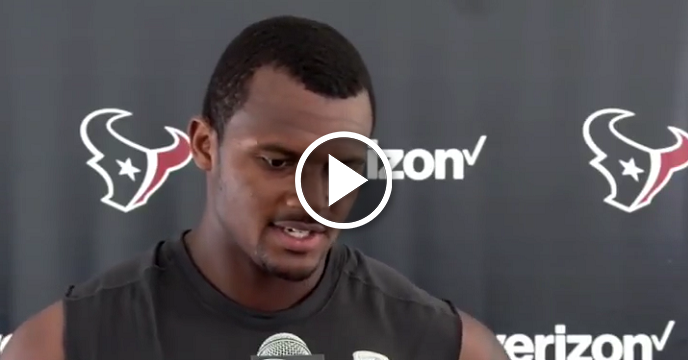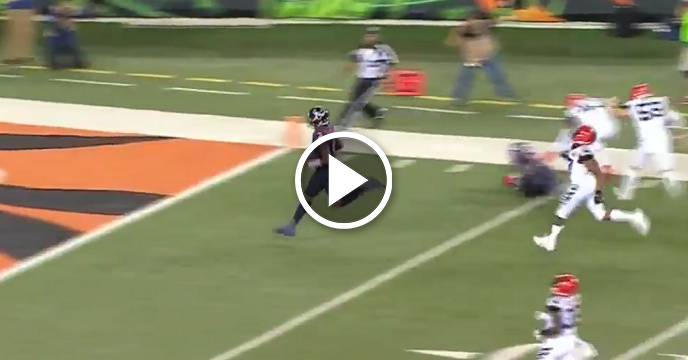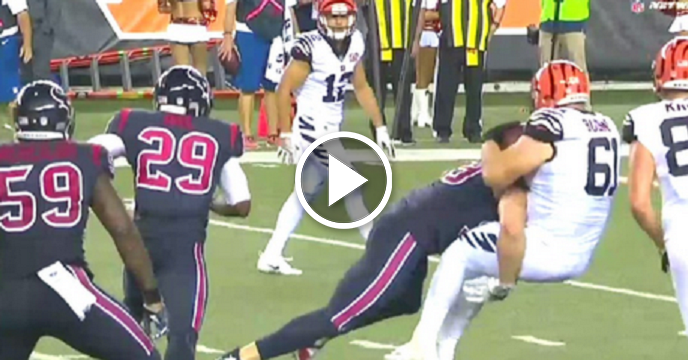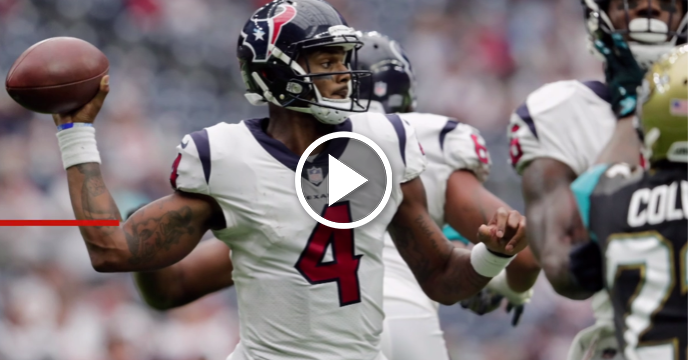Andre Johnson was drafted by the Houston Texans third overall in the 2003 NFL Draft out of the University of Miami, where he was a stand-out at wide receiver and the 2002 Rose Bowl Co-MVP.
In Johnson’s rookie season he lived up to his pre-draft billing, starting all 16 games recording 66 receptions for 976 yards and 4 touchdowns. The Texans ended the season 5-11, and third in the AFC South. He followed up his first year with an outstanding 2004 and was selected to his first Pro Bowl after catching 79 passes for 1,142 yards and hauling in six touchdowns from then-Houston QB David Carr. Johnson is credited as the reason Carr threw for a career-best 3,531 yards that season, a mark that still stands on Carr’s resume as the team improved to 7-9.
Johnson was on his way to becoming one of the most revered wide outs in the league in just two seasons.
Then something happened the following year that would foreshadow seasons to come, although at the time seemed miniscule.
Johnson missed three games (weeks 6, 7, and 8 ) due to an injury. It seemed that he couldn’t recover; catching only 53 passes for just over 600 yards and two touchdowns the remainder of the season. In 2005 the Texans regressed, finishing the season at the bottom of the division, mustering up only two wins (2-14).
He bounced back in 2006, and the Texans improved, slightly, finishing at 6-10. Johnson’s 103 receptions led the league and his 1,147 yards and five scores were enough for him to make his second Pro Bowl, his first All-Pro selection in the second-team, and he was named the Texans MVP.
He was elevated to elite status around the NFL and in March 2007, signed a six-year extension worth $60 million. Things were looking up for both Andre Johnson and the Houston Texans.
Then the season came, and Johnson suffered another injury. This time, he was sidelined seven games with a knee injury. Johnson was able to play the final seven games, and ended the season with 60 receptions, 851 yards, and eight touchdowns as the team reached .500 on the year. When the season was over he had surgery on his left knee and missed some time in the offseason, but rebounded strong in 2008.
The Texans ended 2008 stagnant at 8-8, but Johnson finished his sixth season with career highs in receptions (115) and receiving yards (1575 yards), both of which led the league. Once again the team’s MVP he also made his third Pro Bowl and was named All-Pro for the second time, reaching first-team status.
2009 felt like the Texans were on the brink of something big. Johnson led the league once again with 101 receptions and 1,569 yards and Houston ended the season at 9-7 and as the AFC South runner up. For the second consecutive year, Johnson was a Pro Bowl starter, and named first-team All-Pro. For the third straight season he was the Texans MVP.
In August 2010, Johnson became the highest paid receiver in league history when he signed a two-year contract extension with the organization, keeping him in Houston until 2016.
The team’s upward swing seemed to be reversed in 2010, sliding backwards to a 6-10 record. Johnson, however, kept his momentum going despite an ankle injury that he suffered against the Washington Redskins Week 2 that lingered throughout the season, and kept him out of three games (Johnson missed week four against the Oakland Raiders and the final two games of the season). In 13 games played, Johnson caught 86 passes for 1,216 yards, and repeated his accolades from the previous year. Johnson withdrew from the Pro-Bowl, and opted for arthroscopic ankle surgery in January 2011.
The procedure was minor enough that Johnson was cleared to participate in off-season workouts, but due to the NFL lock-out, there were none to be had. Because of the “extra healing time” Johnson was thought of by many media members to be a top performer at wide receiver in 2011.
When healthy, Johnson certainly was one of the very best; and even at times during an injury, Johnson was one of the best.
The team just needed to win more games. Get to the playoffs. With Matt Schaub, Arian Foster, and Andre Johnson leading the way, fans were optimistic 2011 would be their year.
Foster missed two out of the three games to start the season, but Ben Tate proved a formidable replacement. Johnson missed weeks 5-10 with a right hamstring injury, but was slated to be back after the bye week for the Week 12 contest against division-rival Jacksonville Jaguars. Unfortunately, Schaub sustained a Lisfranc fractures against the Tampa Bay Buccaneers week 10, and was out for the season. Johnson would have to rely on back-up Matt Leinart to keep the team’s win streak alive, and hope the two could gain instant chemistry. Johnson didn’t have much time to find the chemistry; Leinart left the game before the first half ended. Third-string rookie TJ Yates stepped in, and the Texans won. Johnson wasn’t a major factor, catching only a pair of passes for 22 yards. The next week, he caught four receptions for 97 yards, including a 50-yarder, before pulling up on a pass the third quarter and limping off the field.
Johnson sat on the bench while being attended to by trainers with his head in his hands. The sentiment was echoed throughout the Texans fanbase. Another hamstring injury (to the left one this time) would force the franchise wide receiver to miss more time, but this time it was different.
This time, Houston was making a playoff push, and they needed Johnson. He missed the next three games, and the Texans went 1-2. Yates needed Johnson.
He returned for the final regular season game, catching a mere two passes for 21 yards, as the team went on to lose in heartbreaking fashion to the Tennessee Titans by a score of 22-23. The loss had little bearing on the Texans as a whole, who had clinched the AFC South the week before, but Johnson had only logged three games with the rookie QB under center.
When the playoffs rolled around, Johnson was back to Pro-Bowl form, hauling in 13 passes for 201 yards and one score in the combined two games. Houston defeated the Cincinnati Bengals in their first playoff game in franchise history, but fell on the road to the Baltimore Ravens, sending them out of the hunt for a Super Bowl XLVI berth.
Fast forward to May 2012. Andre Johnson had arthroscopic surgery on his left knee and did not participate in OTA (organized team activities) or the June mini-camp. Matt Schaub, still rehabbing his foot, did not attend either.
Instead, while the rest of the team was taking the usual six week break between mini and training camp, Schaub and Johnson were at the University of Houston, where the QB was leading throwing sessions. Both players believe they will be ready to go at the start of training camp; last season the duo played in only three games together.
After the season the Texans put WR Jacoby Jones on waivers after he started in place of Johnson last year (the Ravens eventually signed him in May). In April they drafted DeVier Posey in the third round and Keshawn Martin in the fourth round of the draft, and signed undrafted free agents Mario Louis, Jerrell Jackson, and Dwight Jones (who missed all off-season workouts after reportedly telling the team he no longer wanted to play football). Out of all wideouts listed on Houston’s roster, only two (Johnson and Kevin Walter) have caught an NFL pass.
They brought in Mike Sims-Walker for a tryout during mini-camp, but did not sign him; Sims-Walker is still a free agent. Plaxico Burress is searching for a new home, and rumors were that there was mutual interest between Burress and the Texans, but he also remains unsigned.
Which leaves the position of wide receiver at a big question mark, considering Johnson’s injury-prone past.
Naturally, many people feel a healthy Schaub is the key to a return trip to the postseason for the Texans. Historically, Johnson’s health may be the most important of all.
For more from Dory, follow her on Twitter @DoryLeBlanc1
 Share
Share 

